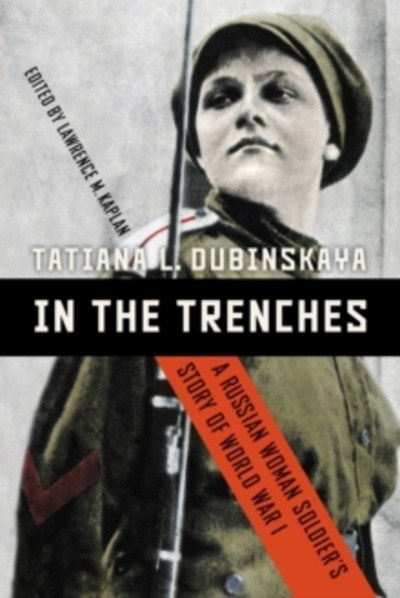In the Trenches
A Russian Woman Soldier's Story of World War I

Editorial Casemate
Lugar de edición
Estados Unidos
Fecha de edición agosto 2020 · Edición nº 1
Idioma español
EAN 9781640121966
208 páginas
Libro
encuadernado en tapa blanda
Dimensiones 152 mm x 228 mm
Resumen del libro
Tatiana L. Dubinskaya was a schoolgirl who ran away from home and served on the Eastern Front from 1916-17 as a soldier in the Russian army during World War I. She later became a writer and in 1930 recounted her personal experiences as a soldier in an autobiographical novel, called In the Trenches, published in Moscow.
In 1936 she revised and republished a shorter version of her story under a new title, Machine Gunner. Both versions of her novel had much in common. Most of the characters and much of the storyline remained essentially the same, but there were a few notable exceptions, which included the addition of more revolutionary zeal to the main characters in Machine Gunner, which likely gave it greater appeal in Stalinist Russia.
This revised edition of In the Trenches has been edited using select portions from Machine Gunner to provide greater clarity and context to Dubinskaya's original story. In the Trenches received critical acclaim when first published, being favorably compared with Erich Maria Remarque's 1929 classic World War I novel, All Quiet on the Western Front, which portrayed the stark realism of life in the trenches through the eyes of a young German soldier. Dubinskaya's character, Zinaida "Zina" Kramskaya, had similar experiences.
In the Trenches was significant as it marked the first major account of a female soldier from World War I to be published in Russia. In April 1930 the United Press International reported that an American publisher had acquired the rights for an English edition of In the Trenches, but it never went into print. Russian censorship may have stopped the English edition.
In the novel, Zina develops close ties to her brothers in arms, endures the hardships and stresses of war, is exposed to the undercurrents of revolutionary thinking in the ranks, and comes to grips with the disruptive effects of the czar's abdication in March 1917, which led to the wide-scale spread of a socialist revolution in the army. After returning home for a visit with her family, she wrestles with remaining and returning to a normal life. Eventually, she is drawn back to the theater of war.
Back at the front in the wake of a revolution that overthrew the czar and the Romanov dynasty, she sees widespread changes sweeping across the army. The revolution has brought a provisional socialist government to power whose new policies cause havoc in the army. Soldiers' committees emerge to challenge traditional authority from the officers, and in some cases disgruntled soldiers summarily execute unfavorable officers without facing any repercussions.
These sudden changes cause a massive destabilization in the army that leads many soldiers to desert and return home, including Zina's regiment. Although she was exposed to revolutionary propaganda, she is not an ardent revolutionary. Her story ends abruptly in the summer of 1917, several months before the November 1917 Bolshevik revolution.








